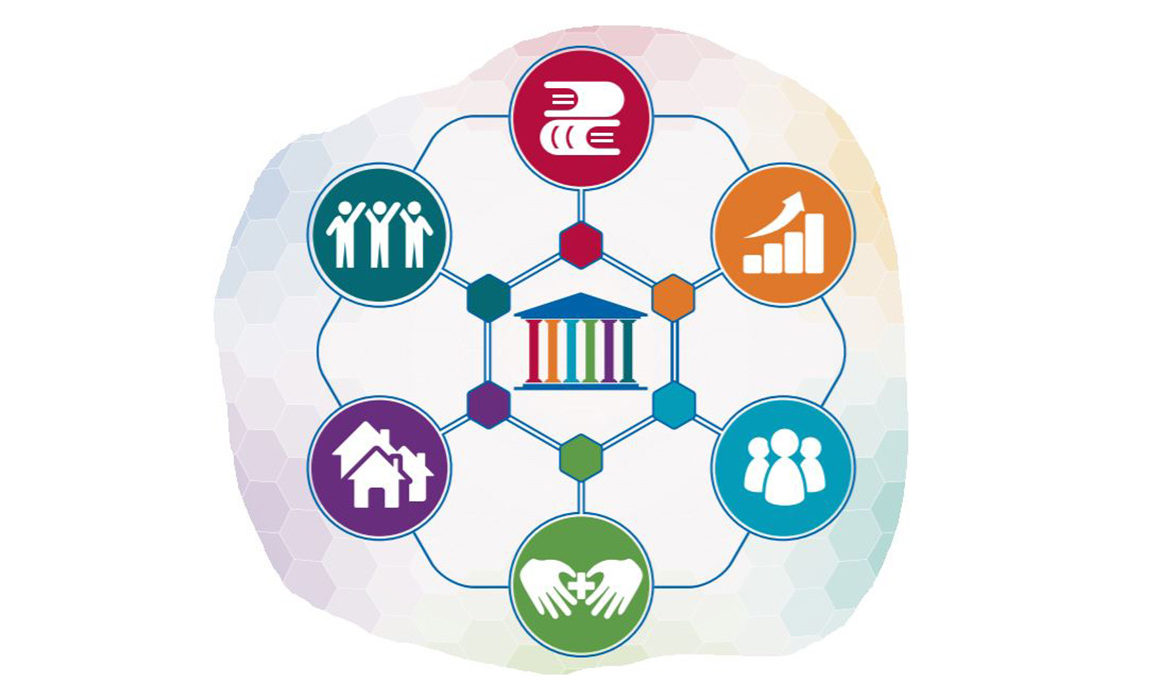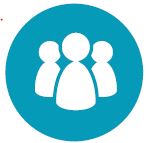
The community schools model advanced by CTA and NEA includes six pillars of practice. Unlike most public education models, these pillars are adaptable to the needs of a school’s students, staff, families and community, and pay particular attention to creating, supporting, and sustaining a culturally relevant and responsive climate.
For more information, examples and resources, visit cta.org/communityschools.

Strong, Relevant Curriculum
Community schools provide a rich and varied academic program, allowing students to acquire both foundational and advanced knowledge and skills in many content areas. Learning and enrichment activities are provided before and after the regular school day, including sports, the arts, and homework assistance. Parents and families are supported through adult education.
High-Quality Teaching
Teachers at community schools are fully licensed, knowledgeable about their content, and skillful in their practice. Instructional time focuses on learning rather than testing. Individual student needs are identified, and learning opportunities are designed to address them.
Inclusive Leadership
The leadership teams of community schools include educators, other school staff, parents, students and community members. The leadership team ensures that the community school strategy remains central in the decision-making process. The team plans development and implementation, including thinking about sustainability.

Positive Behavior Practices
Community schools emphasize positive relationships and interactions. Restorative discipline practices such as peer mediation, community service, and post-conflict resolution help students learn from their mistakes and foster positive, healthy school climates where respect and compassion are core principles. Zero-tolerance practices leading to suspension and expulsion are avoided.

Family and Community Partnerships
Families, caregivers and community members are partners in community schools. Their engagement is not related to a specific project or program, but is ongoing and extends beyond volunteerism to roles in decision-making, governance and advocacy.

Community Support Services
Community schools recognize that students often come to school with challenges that impact their ability to learn, explore and develop in the classroom. Community schools provide meals, health care, mental health counseling, and other services before, during and after school. Connections to the community are critically important so support services and referrals are available for families and other community members.


The Discussion 0 comments Post a Comment